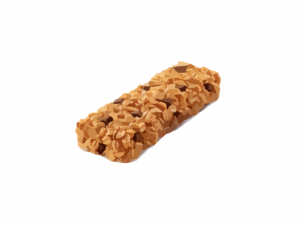7 Ways to Treat Hyperpigmentation

Hyperpigmentation is a skin problem where you have dark spots on your skin. These dark spots are areas where your skin is producing excess melanin. Some skin problems that can be attributed to hyperpigmentation are freckles, age spots, liver spots, and pregnancy masks.
There are many possible causes of hyperpigmentation. It can be caused by excessive sun exposure, skin treatments, cosmetic products, acne and other skin conditions, hormonal changes, and heredity.
No matter what causes the hyperpigmentation, most people who have it are interested in finding treatments that solve the condition.
Here are some ways to treat hyperpigmentation:
Cysteamine cream
A treatment that has recently grown in popularity is cysteamine cream. Its popularity can be attributed to it being a safer alternative to hydroquinone, which is the most popular hyperpigmentation treatment for many years. Cysteamine, a natural antioxidant found in the human body, is corticosteroid-free and paraben-free. The cysteamine cream has been shown to remove or lighten dark patches on the skin.
Hydroquinone
The most popular way to treat hyperpigmentation is with hydroquinone. Known for its skin lightening abilities, hydroquinone is also a common ingredient in many skin whitening products. However, there are many dangers associated with the use of hydroquinone, making it a less attractive treatment option than cysteamine cream. The 4% hydroquinone cream requires prescription while the 2% cream is available over-the-counter. Hydroquinone cream is applied only on spots with discoloration to lighten them.
Tretinoin
Another common ingredient in many cosmetic creams, tretinoin is used to treat acne, smoothen wrinkles, reduce roughness, improve skin discolorations, and reduce fine lines. Some creams use a combination of tretinoin and hydroquinone. Although there are a lot of products containing tretinoin that can be easily bought over-the-counter, it is still available in various strengths, so it is best to consult your doctor before using any product.
Fractional Laser Resurfacing.
This in-clinic treatment is a popular one for those with hyperpigmentation. There are different types of laser used to treat hyperpigmentation and discoloration. Some of the usual ones are Fraxel, Halo, and Clear + Brilliant. These fractional laser treatments actually treat discoloured areas of your skin by damaging it safely and in a controlled manner. The goal is to stimulate the skin’s natural healing process so that the discoloured skin is replaced with new, fresh skin.
Microdermabrasion
A lot of people, even those without hyperpigmentation, regularly go for a microdermabrasion treatment. During this treatment, the topmost layer of the skin is gently abraded and removed, taking with it any discoloration and other minor imperfections. The treatment is great for bringing out clearer and healthier looking skin. If you want to use it to help in treating your hyperpigmentation, you will need more than a single session. Try having it regularly and you will notice that discolored spots will slowly and gradually lighten over time.
Chemical peel
As the name says, this treatment effectively peels off a layer of your skin. Glycolic acid, also a known skin lightening agent, is a common substance used for chemical peel treatments. Often, a chemical peel treatment is done along with a regular application of some topical cream that may contain hydroquinone or tretinoin.
Intense Pulsed Light (IPL)
Used for a wide variety of skin treatments, intense pulsed light is also popularly used for treating skin discolorations. This painless procedure involves using light-based energy pulsed onto the skin to lift the discoloured part up and out. Like other hyperpigmentation treatments, it will usually take several sessions before you see significant results. It is also often done as part of a complete treatment plan that may involve other procedures such as laser treatments and use of topical creams.
Author Bio: Originally from the U.S., Rana Tarakji is the founder of One SEO – a link building company – and a web content specialist who now lives and works in Beirut, Lebanon. Rana’s work has appeared in a wide range of publications in print and online, including Life Hacker, Upwork, Christian Today, Newswire, and many other outlets.






